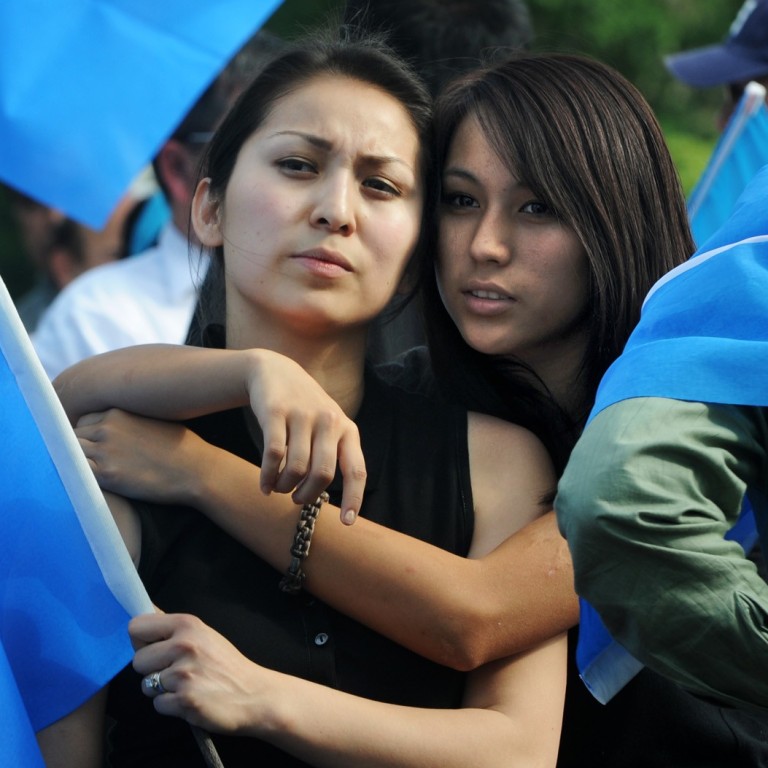
White House appoints Uygur-American Elnigar Iltebir to top China policy advisory job
- Appointment is a ‘poke in the eye’ to Beijing and could signal a stronger focus on human rights in Washington, analysts say
The White House has appointed a Uygur-American academic to a top position on China policy in a move meant to put more pressure on China over mass detentions in the far western region of Xinjiang, analysts said.
The appointment comes as Beijing faces intense international pressure over reports that up to one million Uygurs and other Muslims have been held in camps in Xinjiang, camps that Beijing says are vocational training centres.
It also comes as China and the United States remain deadlocked in a trade war after more than a year of negotiations and tit-for-tat tariffs.
Citing serving and former American officials, US-based Foreign Policy magazine reported on Thursday that Elnigar Iltebir, a Harvard-educated academic and daughter of a prominent Uygur intellectual, was appointed the US National Security Council’s director for China.
In the role, Iltebir will advise the president and senior White House officials on US policy towards China and coordinate the implementation of that policy among government departments and agencies.
The administration of US President Donald Trump has been criticised by both Republicans and Democrats for not taking a strong enough stand against China over human rights violations in Xinjiang.
Trump met a member of the Uygur community publicly for the first time in Washington last month during a meeting of victims of religious persecution from around the world, but he did not appear to know in detail about the internment camps.
Donald Trump hears ‘tough’ details of China’s Xinjiang camps as he meets detained Uygur scholar Ilham Tohti’s daughter
Sean Starrs, assistant professor of international relations at City University of Hong Kong, said Iltebir’s appointment was another way to increase overall pressure on China and to indicate a changed US foreign policy position towards China.
“Part of Trump’s platform is saying that all previous presidents were too benevolent to China, and so the Trump administration is taking a more confrontational stance toward China – appointing a Uygur academic is certainly part of that,” Starrs said, noting the move was more likely to have been driven by hawkish US cabinet members rather than Trump himself.
“The symbolism of her ethnic identity in itself is a poke in the eye to China.”
Jared Mondschein, senior adviser at the US Studies Centre at the University of Sydney, said previous China directors were heavily involved in coordinating foreign policy, as well as meeting both the president and Chinese diplomatic counterparts.
“This is an important and critical role, especially in this administration, especially given how central China is in their focus,” Mondschein said.
“Having someone there, across the table [with her background], the visuals of that are really powerful.”
Mondschein said the appointment could signal the administration’s stronger focus on human rights.
“They were holding back on human rights criticisms to get a better trade deal, but it seems like at this point things are only heading in one direction so it doesn’t hurt too much to draw more attention to an obvious human rights violation,” he said.
‘Stain of the century’: top US diplomat Mike Pompeo lashes out at China over treatment of Uygurs
The administration twice considered and abandoned plans to impose economic sanctions on China over mass detentions in Xinjiang. The most recent sanctions package was quashed just before the Group of 20 summit in Japan in late June, over fears that it would disrupt talks between Trump and Chinese President Xi Jinping on the trade war.
There are few publicly available details about Iltebir, who gained a doctorate from the University of Maryland in 2015.
During her masters work at Harvard’s Kennedy School of Government, she crossed paths with former US defence secretary Ash Carter, according to a note in her dissertation on Turkey’s foreign policy.
A Washington Post photo shows her at a protest rally at the Chinese embassy in 2009.
Attempts to contact the National Security Council and Iltebir went unanswered.

